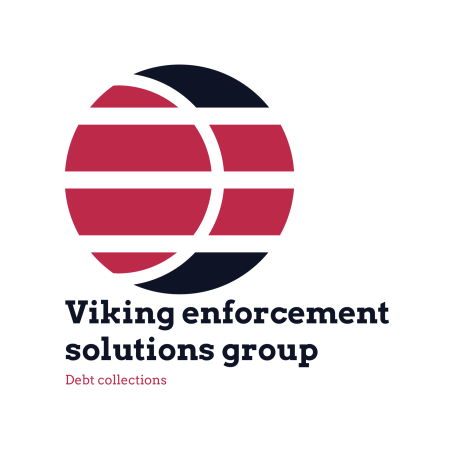
Understanding Court Costs
Navigating the Financial Aspects of Legal Proceedings
Court costs can be complex and vary significantly based on the type of case and the court involved. When engaging in legal proceedings, it is essential to anticipate the various expenses that may arise. These costs typically include filing fees, which are mandatory charges for submitting documents to the court, as well as additional charges that may occur throughout the legal process.
Filing fees can differ based on the nature of the case, be it civil, criminal, or family law. It is crucial to understand that these fees are generally non-refundable, regardless of the case outcome. Additionally, potential extra costs may include fees for issuing various summons, applying for court orders, or requesting court transcripts. These additional expenses can accumulate, especially in lengthy proceedings, making it vital to budget effectively from the outset.
Moreover, parties involved in court cases should also consider other financial implications such as legal representation fees and the costs associated with gathering evidence or expert witnesses. Understanding all potential court costs is fundamental to prepare adequately and ensure financial resources are available throughout the judicial process. At Viking Enforcing Solutions Group, we are here to provide guidance on how to manage these costs effectively.
Understanding CCCJs: A Comprehensive Overview
This section will explore CCCJs (County Court Judgments) and their associated fees. It will provide insights into what they entail and how they can impact businesses and individuals.

What is a County Court Judgment?
Defining the CCCJ Concept
A County Court Judgment (CCJ) is a legal decision made by a court in the United Kingdom. It is issued when an individual or business fails to repay debts. This judgment remains on a person's or an entity's credit record for six years, severely affecting their ability to secure credit or loans during this period.

The Process of Obtaining a CCJ
How Judgments Are Granted
The process involves a creditor filing a claim against a debtor in county court after prior attempts to collect the debt have failed. If the court finds in favour of the creditor, a CCJ is issued, outlining the amount owed and any associated costs. This process is crucial for creditors seeking to recover unpaid debts.

Fees Associated with CCJs
Understanding the Costs
Obtaining a CCJ does not come without costs. There are court fees for filing a claim, which vary depending on the amount of debt. Additionally, should enforcement action be necessary, further costs will be incurred. It is essential for businesses to understand these financial implications when pursuing debts with CCJs.

The Impact of CCJs on Credit Ratings
Navigating Financial Consequences
A CCJ can have detrimental effects on a credit rating. Individuals and businesses with a CCJ may face difficulties in obtaining credit, which can hinder growth and financial stability. It is crucial to be aware of these impacts and manage debts proactively to mitigate potential damage to one's credit profile.
Costs Of Debt Collection And Enforcement.
costs may change due to the enconomy and variation of costs
FOR MONEY CLAIMS UP TO £300 NOT MORE THAN £500 - IS £50 PLUS VAT
GREATER CLAIMS UP TO £500 NOT MORE THAN £700 IS - £80 PLUS VAT
CLAIMS OF GREATER THAN £1000 NO MORE THAN £1200 IS - £110 PLUS VAT
CLAIMS GREATER THAN £1200 NOT MORE THAN £1800 IS - £150 PLUS VAT
CLAIMS GREATER THAN £2000 NOT MORE THAN £2500 IS - £185 PLUS VAT
CLAIMS OF GREATER THAN £2500 NOT MORE THAN £3000 IS - £200 PLUS VAT
CLAIMS OF GREATER THAN £3000 NOT MORE THAN £4000 IS - £265 PLUS VAT
CLAIMS GREATER THAN £4000 NOT MORE THAN £7000 IS - £455 PLUS VAT
CLAIMS GREATER THAN £7000 NOT MORE THAN £10,000 US 550 PLUS VAT
ANY CLAIMS OF £10,000 UP TO £20,000 IS £800 PLUS 5% OF THE VALUE OF THE CLAIM PLUS VAT
HEARING COSTS AND FEES SMALL CLAIM TRACK .
ANY CLAIMS OF £300 TO £1000 IS £200 PLUS VAT
CLAIMS FROM £1000 TO £2000 IS £250 PLUS VAT PLUS £65.00 FOR EVERY £1000 UP TO £10,000
HIGH COURT ORDERS £135.00 COUNTY COURT IS £250.00- SMALL CLAIMS TRACK IS £500 UP TO £10,000
BANKRUPTCY AND COMPANY WIND UP PETITIONS BANKRUPT { CREDITORS PETITION} WILL GO THROW SOLICITORS
{ there costs may differ and this will be allocated on behalf of the creditor from us and the costs will be seperate }
FAST TRACK FEES ARE £550 PLUS VAT
VISITING YOUR HOME {CALLED ENFORCEMENT} £190.00 PLUS 7.5% EXTRA YOU,LL PAY FOR DEBTS OVER £1500
TAKING GOODS AND SELLING YOUR BELONGINGS { CALLED SALE} £550 AND 7.5% EXTRA YOU,LL PAY FOR DEBTS OVER £1500
DEBT LETTERS STAGES 1 AND 2 FEES WILL BE ADDED OF £65.00 PLUS VAT PER LETTER DEBTS FROM £700 UPWARDS
1ST ENFORCEMENT VISIT WILL BE 2X £65 {of letters sent} PLUS STAGE 3 OF SITE VISIT IS £190.00 PLUS VAT
. WE DO NOT DO NO WIN NO FEE CASES, ALL CASES ARE REVIEWED AND EACH CASE IS DIFFRENT AND COSTS.
{PLEASE READ OUR PRIVACY POLICY AND COMPANY RULES AND REGULATIONS}
